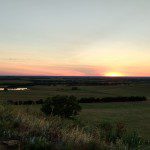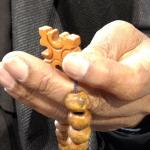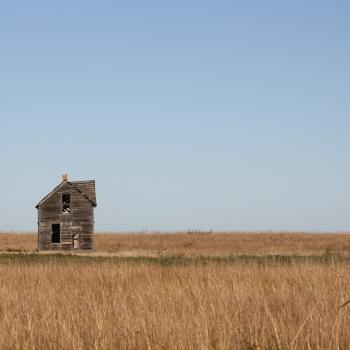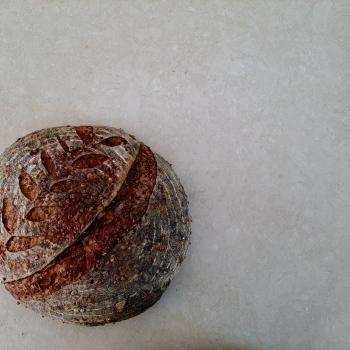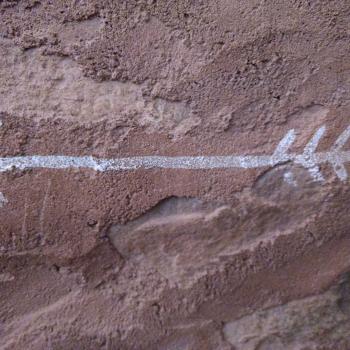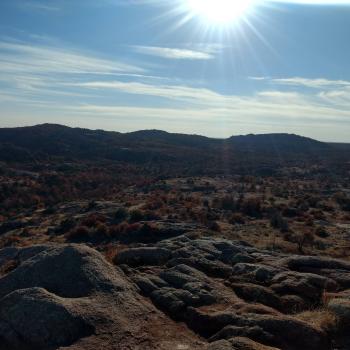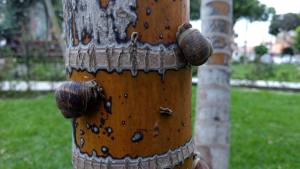
We’ve done some traveling recently, and as always, we learned that while it’s good to go away, it’s even better to come home.
Where is home, exactly? What is it? Moving about every couple of years, like we have, makes us hold the idea of home a little lighter–and also seek it with a little more longing. Home is where we make it, where the heart is–or something like that. Maybe, with our semi-nomadic existence, we’re a little like the snail with its shell, carrying our homes on our backs. But that’s not quite right either, because while home for nomads might be as wide and expansive as the sky, it still has to be a place and an identity.
That’s what God offered Abram when God called him to go from his country and kindred (Genesis 12:1): a place and an identity. God promised land, a place where his people would be able to grow and thrive (Genesis 12:7; 17:18). In the Scriptures, the promised land is always about more than land. It’s not just real estate that God offers; it’s a relationship to soil and earth, tied to right worship, right living, right relationship (see: Genesis 2:15; Leviticus 23:22, 25:2; 1 Kings 21). Nevertheless, the land God promises is specific. It’s a real place that can be lined out on a map. It’s not just the idea of land. God promises Abram actual land that will become Abram’s home and the home of his people.
This matters, because in our spiritualizing tendencies, we can forget that the promise of home means that we have an actual place to lay our heads, some square of the earth that we lay claim to–and that claims us.
Our family claimed our current place as home when we planted perennials. We barely had everything out of the moving boxes when we started tucking strawberry slips into rows and digging asparagus crowns into the earth. We set out blackberry canes. The following year, we planted an apple tree. We were following an intuitive desire to put down roots and claim this place as our home. When we listed our horticultural upgrades to a friend, she expressed some surprise, knowing the way that pastors often have to move about, for both good and poor reasons. “How do you know things are going to work out with the church?” she asked. I shrugged. “I guess we just decided we’re staying.”
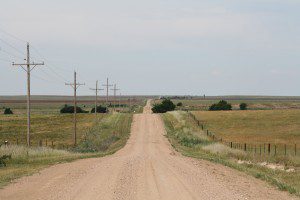
Yet home is more than a place; home is also an identity. Before God promised the land to Abram, God promised to make Abram a nation and to bless him (Genesis 12:2). Those are promises of identity. God will be the God of Abram, and Abram and his offspring will be God’s people (Genesis 17:7; cf: Exodus 6:7). Home in this sense is about belonging. We inhabit a place, but also a shared story. Home is where we are loved–loved into being, loved into life. It’s the kind of space created by a nurturing family and good friends. It’s the rightness we feel when we sense that we have found our place.
This is why the most precious features in the topography of home are always the people. We’re home when we have friends to share our table–and maybe butcher a few chickens together. We’re home when we become neighbors, when we share a story, when we find people who hear us out and welcome us in. Home is where we are claimed by God and one another.
At some level, I think we’re all looking for a home, a place and an identity to call our own. For the Christian journey, the borders of our home ultimately lie beyond this world. No doubt this is why, when Jesus wanted to give his disciples hope as his death drew near, he told them: “in my Father’s house there are many dwelling places” (John 14:2). As with the disciples, Jesus is pointing us beyond the usual horizons, setting us toward a “better country, that is, a heavenly one” (Hebrews 11:16). It’s a home that we occasionally glimpse on the horizon, sometimes even set foot in. Like Abram and Sarai, we’re journeying “on by stages” to our home (Genesis 12:9).
Abram and Sarai’s journey was about more than crossing the landscape It was a transformative journey. Abram became Abraham, and Sarai was given the name Sarah (Genesis 17:5, 15). They became the people God had created them to be, transformed in fits and starts as they came home to God.

